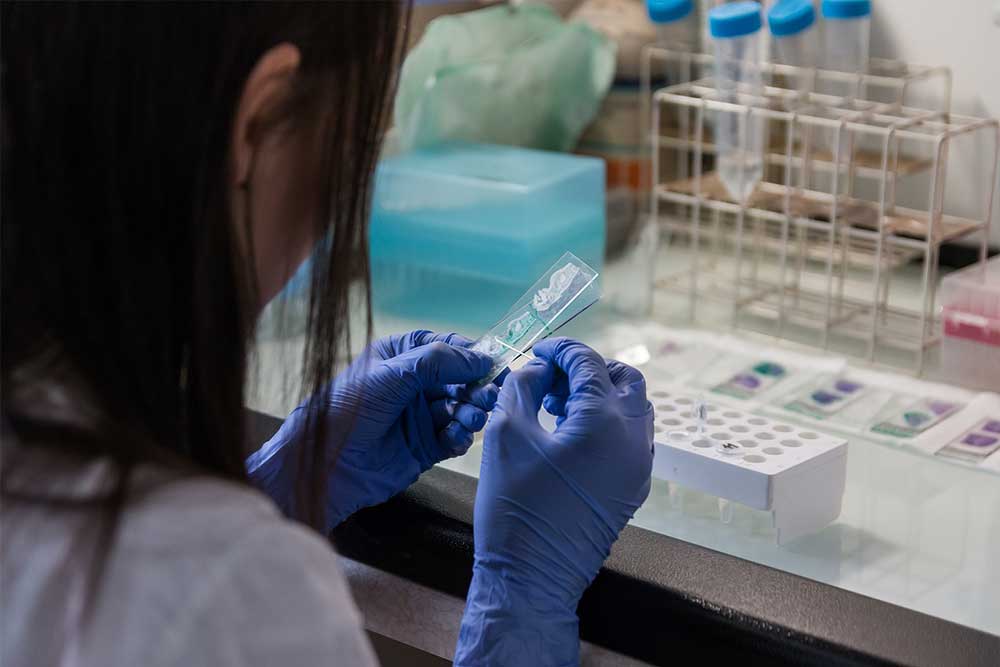Diagnostics & Lab Testing
Diagnostic Testing and Functional Medicine
Testing is very important in treating so many illnesses and using laboratory testing is a great way to see what is going on in your body behind the scenes. We order an array of laboratory tests in our office, but we can also educate you on what tests to ask from your primary care physician or your OB/GYN. I am a strong believer in functional medicine, which views the body as one integrated system rather than a collection of independent organs. Therefore, diagnostic testing is important to monitor our progress. We can order CBC + differential + platelets and Chem panels to check for liver function, renal function, and much more.
Digestive Function Tests
We work with several to offer a number of functional tests to determine causes of acute and chronic digestive problems as well as assessing the role of digestion and absorption in other health conditions. Digestive function tests can be extremely useful in pinpointing specific problem areas and can help guide therapeutic approaches for the most rapid and effective results.

Food Allergy Testing/Hypersensitivity
The incidence of food allergies has increased dramatically over the years, and it is estimated that up to 20% of the population have adverse reactions to foods. Increased total antigenic load related to food and environmental sensitivities has been associated with a wide range of medical conditions affecting virtually every part of the body. Even mood and behavior, including hyperactivity disorders in children, are profoundly influenced by food allergies. Symptoms can range from mildly uncomfortable to severe and may include: Asthma, Migraine, Eczema, Hives, Arthritis, Ear infections, Sinusitis, Colitis, Irritable Bowel Syndrome (IBS), ADD and ADHDD in children. An accurate food allergy test can greatly improve the lives of people suffering from undetected allergic reactions.
Examples of most common digestive function tests we use include:
- Comprehensive Digestive Stool Analysis (CDSA): Offers a comprehensive look at the health of the gastrointestinal tract, with information about digestion, absorption, bacterial balance, yeast overgrowth, inflammation, metabolic activity, and immune function.
- Comprehensive Parasitology: Uncovers parasitic infections such as giardia lamblia, blastocystis hominis, dientamoeba fragilis, intestinal worms, and other organisms that can cause acute or chronic digestive distress. This test can be combined with the CDSA.
- Intestinal Permeability: Determines whether “Leaky Gut Syndrome” is present which can be associated with a variety of chronic health problems ranging from inflammatory arthritis to chronic skin problems and allergic conditions.
- Microbiology Analysis: Assesses the presence of beneficial bacteria such as Lactobacillus acidophilus, potential pathogens other than parasites, overgrowth of non-pathogenic bacteria which may indicate imbalanced bacterial populations, and yeast overgrowth conditions.
- Helicobacter pylori Antigen: Detects the presence of H. pylori, an organism commonly associated with ulcers and gastritis.
IgE vs. IgG Mediated Allergens
Classical skin testing for allergies such as skin-scratch testing, only measures IgE-mediated reactions which are immediate and provides no information concerning delayed IgG hypersensitivity reactions. Assessment of relative IgG antibody levels to a multitude of foods using sensitive Enzyme-Linked Immunosorbent Assay (ELISA) technology identifies those foods against which the patient is producing antibodies. Measuring both relative IgE and IgG antibody levels provides an invaluable starting point for dietary intervention.

IgE Mediated Allergies
- Immediate onset (within minutes)
- Circulating half life of 1-2 days
- Permanent allergies
- Stimulates histamine release
- Includes foods, inhalants and molds
IgG Mediated Allergies
- Delayed onset (4-72 hours)
- Circulating half life of 21 days
- Temporary Allergies
- Stimulates histamine release
- Includes foods, herbs and spices
Adrenal Stress Test
When under stress, the adrenals glands produce cortisol. This hormone controls the “fight or flight” response and is naturally supposed to diminish once you have achieved safety and the stress is over. In today’s world, the stress is rarely over, and many people’s adrenal glands become fatigued, or unable to mount the appropriate response. This is when fatigue sets in and it becomes difficult to drag yourself out of bed in the morning. You may become dependent on caffeine and sugar to get you through the day. The adrenals are also an important part of our circadian rhythms. Cortisol levels are supposed to rise in the morning, then taper off throughout the day. If levels stay high at nigh time, this can contribute to insomnia. This test measures cortisol in saliva collected at four (4) different times throughout the day. By evaluating the pattern of cortisol levels, your doctor can tell whether you are in an early adaptive stress response or are in mal-adapted adrenal fatigue. This information will help to guide your treatments for fatigue or insomnia, as well as give clues to immune function and blood sugar regulation. Along with diet and lifestyle management, several herbs and supplements can be very helpful for regulation adrenal function.
Comprehensive Thyroid Test
Healthy thyroid function is essential to good health. Thyroid hormones control our metabolic rate and are particularly important in making proteins in every tissue in our body as well as insuring proper tissue oxygenation. Thyroid diseases and imbalances are common, especially low thyroid function or hypothyroidism, which can affect our energy levels, weight, digestion, and immunity as well as other important body functions. When screening for thyroid problems, most doctors measure TSH (Thyroid Stimulating Hormone) to determine if the thyroid gland is over or under-functioning. Unfortunately, this is often not enough to properly assess thyroid health, especially in people where thyroid dysfunction has not reached the point of obvious disease. Together with history and physical examination, this test gives the most complete overview of thyroid health as well as point to the most effective treatment approaches. Please discuss this with your doctor if you are interested in this test.
Salivary Hormone Testing
Hormones exist in harmony with each other – partners in a delicate balancing act. When our hormones are balanced, our body systems are stable. When hormonal balance is lost, hormone deficiencies and excesses can become toxic to the body causing unwanted symptoms, disorders and disease. Saliva testing reliably identifies hormone imbalances, and is a convenient, inexpensive, and above all, accurate means of testing steriod hormones (e.g. cortisol, estrogen, progesterone, testosterone). Scientific studies have shown a strong correlation between steriod hormone levels in saliva and the amount of hormone in the blood that is active or “bio-available.” It is this fraction of total hormone that is free to enter the target tissues in the brain, uterus, skin, and breasts. Moreover, the non-invasive nature of saliva collection and the convenience of multiple samples facilitate the design of functional assays for the assessment of various endocrine functions. Hormones in saliva are exceptionally stable and can be stored at room temperature for up to a week without affecting the accuracy of the result. This offers maximum flexibility in sample collection and shipment to labs. While blood and serum samples contain total hormone levels, they only give us a glimpse into the total hormone picture, because they do not show what fraction of these hormones is active or bio-available. We primarily use blood tests to monitor thyroid as well as some pituitary hormone levels.
Why should you test?
Hormones are powerful substances that control multiple functions throughout the body. Hormone levels should be sufficient and balanced with respect to each other. Too much or too little of them is not conducive to long-term emotional, mental and physical health. Saliva testing is a window into the emotional, hormonal, immunological as well as the nutritional and metabolic status of the body. Without measuring the hormones before and after treatment your hormone picture is, at best, an educated guess. Hormone levels from woman to woman can vary 200 – 1500%. Just as you cannot balance your bank account without numbers on your bank statements, hormone testing provides both the basis for treatment as well as a measurement of its effectiveness.
What do we test for and what does it tell you?
We test for both male and female hormones. There are a number of hormone panels available for mean and women depending on your specific needs and goals. These hormones may include testosterone, DHEA, cortisol, progesterone, estriol, estrone, estradiol, dihydrotestosterone and androstenedione. The brain-derived regulating hormones FSH and LH, can also be measured to help assess efficacy of control and feedback between the brain and ovaries.
Hormone tests can be used to help detect and monitor the following:
- Hormonal imbalance and PMS
- Functional infertility
- Luteal phase defect
- Menopause and perimenopause
- Influence of lifestyle (diet, exercise, etc.) on the menstrual cycle
- Menstrual problems originating in the brain
- Early pregnancy problems – spontaneous miscarriage
- Cycle irregularities following the use of birth control pills
- Dysmenorrhea, i.e. painful and heavy periods
- Migraine headaches
- Endometriosis and cystic ovarian disease
- Early osteoporosis
- Andropause and male hormone imbalances


